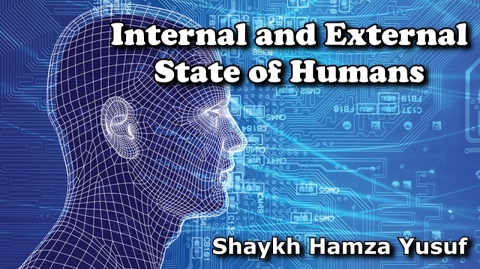Intellect (aql) is a Light That Restrains - Shaykh Hamza Yusuf
5 years ago
03:06
6,103 views
The term ʿaql is said by Muslim philologists to mean originally “to restrain” or “to tie.” It then comes to mean “reason” because it “restrains man from precipitous conduct”
The Qur’anic term used for “intellect” or “reason” is ‘aql. In his Dictionary of Quranic Terms, al-Raghib al-Asbahani glosses the lexical root of ‘aql thus: ‘The root of ‘aql is: restraint (imsak) and seeking to prevent (istimsak), as in: “he hobbled the camel with the harness” (‘aqal al-ba‘ir bi’l-‘iqal).’1
In their works on ethics, scholars sought to define what they meant by ‘aql – “reason,” “intellect”, “rationality” – proffering several definitions current at the time. For some, reason is an intuition (gharizah) by which knowledge is acquired and understood. For others ‘aql is a kind of necessary knowledge (darb min al-‘ulum al-dururi): knowledge that a hearer has no choice but to accept when it is presented to his mind. Some say it is a simple substance (jawhar basit); some, a transparent body (jism shaffaf); for others still, it is simply light (nur).
Ibn al-Jawzi, having listed these definitions, went on to describe it as: ‘an intuition, as it were, a light cast into the heart, enabling matters to be comprehended; the possible and impossible to be known; and the consequences of things to be grasped. This light may be strong or weak. If it is strong, it overcomes desires (hawa) via the realisation of their consequences.’2 The position of most scholars, he adds, is that the seat of reason is the heart; not the mind.3 He then quotes the following verse of the Qur’an to justify the assertion: Have they not travelled in the land, and have they not hearts to comprehend with? [22:46]
The Qur’anic term used for “intellect” or “reason” is ‘aql. In his Dictionary of Quranic Terms, al-Raghib al-Asbahani glosses the lexical root of ‘aql thus: ‘The root of ‘aql is: restraint (imsak) and seeking to prevent (istimsak), as in: “he hobbled the camel with the harness” (‘aqal al-ba‘ir bi’l-‘iqal).’1
In their works on ethics, scholars sought to define what they meant by ‘aql – “reason,” “intellect”, “rationality” – proffering several definitions current at the time. For some, reason is an intuition (gharizah) by which knowledge is acquired and understood. For others ‘aql is a kind of necessary knowledge (darb min al-‘ulum al-dururi): knowledge that a hearer has no choice but to accept when it is presented to his mind. Some say it is a simple substance (jawhar basit); some, a transparent body (jism shaffaf); for others still, it is simply light (nur).
Ibn al-Jawzi, having listed these definitions, went on to describe it as: ‘an intuition, as it were, a light cast into the heart, enabling matters to be comprehended; the possible and impossible to be known; and the consequences of things to be grasped. This light may be strong or weak. If it is strong, it overcomes desires (hawa) via the realisation of their consequences.’2 The position of most scholars, he adds, is that the seat of reason is the heart; not the mind.3 He then quotes the following verse of the Qur’an to justify the assertion: Have they not travelled in the land, and have they not hearts to comprehend with? [22:46]


 English
English Български
Български No filter
No filter











